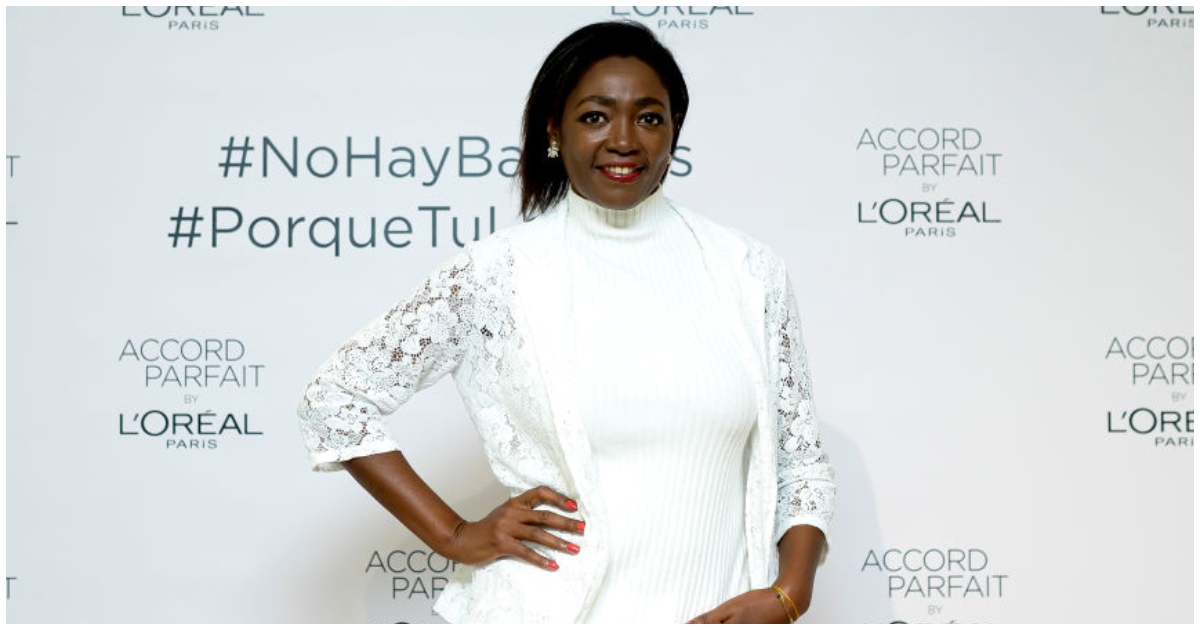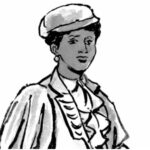Francine Gálvez made history in 1990 when she became Europe’s first Black female news anchor. Her groundbreaking role at Televisión Española (TVE) shattered barriers and paved the way for diversity in Spanish media.
Gálvez’s journey from Cameroon to Spain, and her rise to prominence in journalism and entertainment, is a testament to her talent and determination.
Breaking Barriers in European Broadcasting
Gálvez’s appointment as the anchor of the weekend edition of Telediario on TVE in 1990 was a watershed moment. As the first person of African ancestry to hold this position in Spain, she broke new ground for diversity in European media. Her presence on screen challenged stereotypes and opened doors for future generations of journalists from diverse backgrounds.
“I became the first Black woman to anchor a news program in Europe,” Gálvez stated in a later interview. This achievement was not just a personal milestone but a significant step forward for representation in Spanish media.
From Cameroon to Spain: A Journey of Cultural Adaptation
Born Francine Nicolasa Gálvez Djouma in 1966 in Nkongsamba, Cameroon, Gálvez’s life took a dramatic turn at the age of two. Her family moved to Lopera, Jaén, Spain, where she was raised. This early transition shaped her identity and worldview.
Gálvez’s childhood involved multiple name changes, including from Francis to Paquita. These changes reflect her journey of cultural adaptation and self-discovery in her adopted homeland.
Education and Early Career: Laying the Groundwork for Success
Gálvez’s path to journalism began with her education at Madrid’s Isabel la Católica High School. She graduated in 1984 and went on to study at the prestigious Universidad Complutense de Madrid. Her choice to pursue journalism set the stage for her future success.
During her undergraduate years, Gálvez gained valuable experience working with Radio Televisión Madrid (RTVM). This early exposure to broadcasting helped shape her career trajectory. In 1989, she earned her Bachelor of Arts in Information Sciences, with a focus on Journalism.
Expanding Horizons: From News Anchor to Versatile Media Personality
After her groundbreaking role at TVE, Gálvez continued to expand her career in media. She hosted and narrated programs for major events, such as the opening gala of Disneyland Paris in 1992. Her talents extended beyond journalism into acting, with her silver screen debut in the 1993 film “Supernova.”
From 1997 to 2000, Gálvez took on leadership roles at Telemadrid. She served as program director and reporter for “Madrid directo” and presented the weekly magazine “Macumba TeVe.” Her versatility was further demonstrated when she became the “Self-Hostess” for the stage musical “Mamma Mia” in Madrid.
Continued Success and Diverse Projects
Gálvez’s career continued to flourish in the 2000s and 2010s. She hosted the Spanish talk program “Palabra por Palabra” (Word for Word) and directed the television magazine “Emisiones” between 2005 and 2011. Her work with AMC Networks International Southern Europe from 2012 to 2013 allowed her to contribute to various media projects.
In recent years, Gálvez has taken on new challenges. She hosted the reality show “Gran Boda en Las Vegas” (My Big Fat Vegas Wedding) in 2015 and acted in the Spanish film “Relaxing Cup of Coffee” in 2016. Her ability to adapt and excel in different media roles showcases her enduring talent and relevance.
Legacy and Impact on Spanish Media
Francine Gálvez’s career has left an indelible mark on Spanish media. As a polyglot and multi-talented professional, she continues to be a dynamic force in the industry. Her journey from pioneering news anchor to versatile media personality serves as an inspiration for aspiring journalists from diverse backgrounds.
Gálvez’s legacy extends beyond her personal achievements. She has helped to transform the landscape of Spanish media, making it more inclusive and representative of Spain’s diverse population.
Her success has opened doors for other journalists of color and challenged long-standing norms in European broadcasting.





